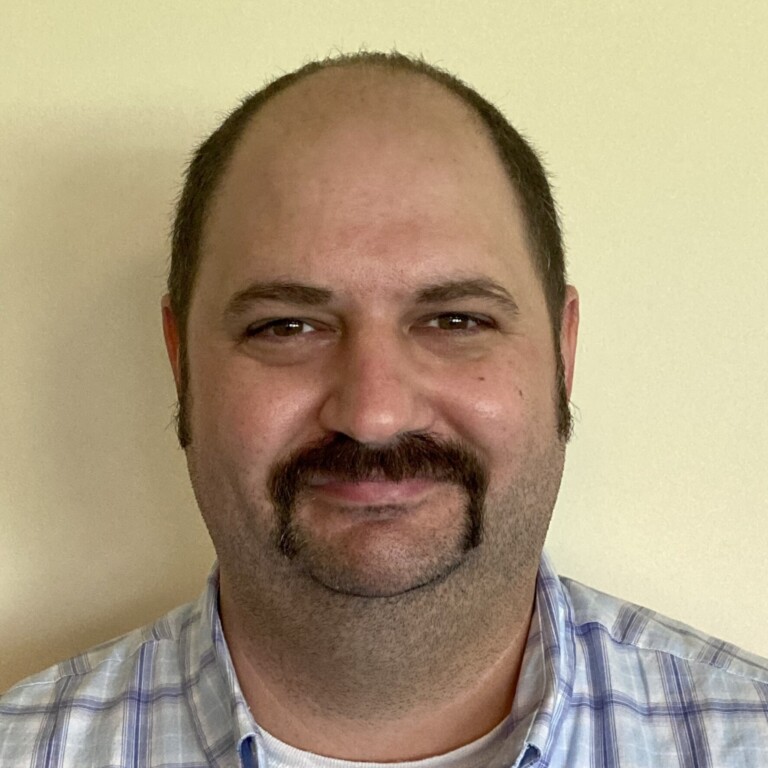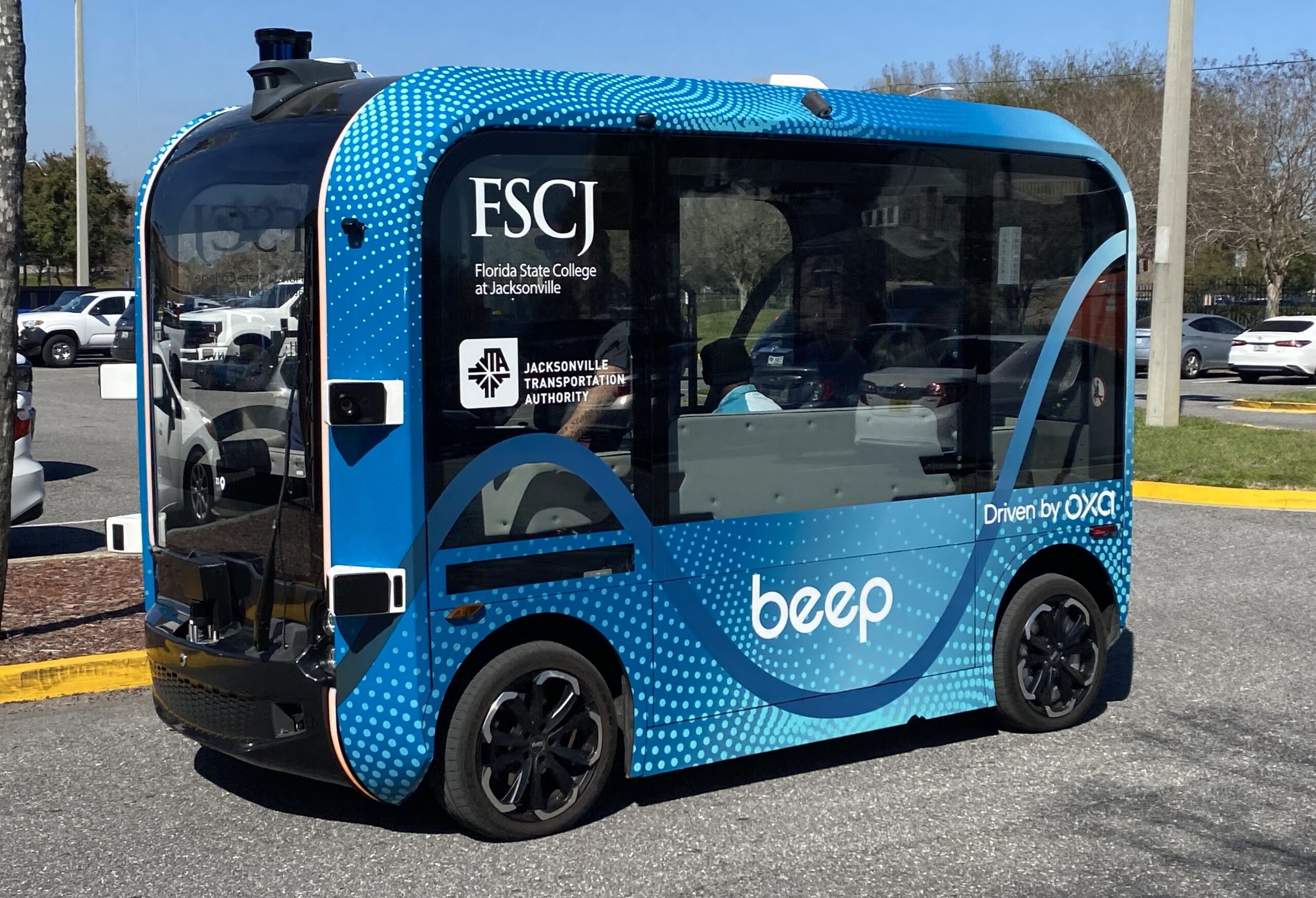Autonomous vehicles are beginning to move people along a mile-long route on the Downtown campus of Florida State College at Jacksonville — the first step toward more widespread use of autonomous people movers Downtown.
Officials from FSCJ, the Jacksonville Transportation Authority and autonomous vehicle maker Beep celebrated the launch of the campus shuttle service Tuesday. FSCJ is the first campus in Florida to have autonomous shuttles in use.
FSCJ’s President John Avendano said the vehicles will move students, faculty and visitors between the administrative offices on campus and the cafeteria and bookstore for free during a five-month pilot program.
“We’ve mapped out a safe route for all of this to happen, which is really not a pedestrian route. It will go within the parking lots,” Avendano said.
The vehicles will not be fully autonomous at first. An operator will be on board at all times during the pilot program to guard against accidents. The vehicles will be monitored at Beep’s command center in Orlando, and the shuttle will be used only during the daytime.
The vehicles are equipped with three different forms of sensors: lidar, radar and cameras, which will pull together information about the vehicle’s surroundings to keep passengers as safe as possible, officials said.
Convincing people to get on board might be a challenge, but Avendano said he believes students will eventually start to buy in. He compared the questions people might have to the same questions people asked when iPhones rolled out many years ago.
“I’m noticing students walking by and the curiosity that they have. I think that’s what the important part of piloting a project like this is — to pilot with those who have that curiosity,” Avendano said. “They want to learn; they want to experience just as easy as it would be to pick up an iPhone for the very first time. I think they are going to adapt very very well.”
The vehicle will travel up to about 12 mph around campus with five to six passengers at a time. The information that is gathered during the pilot program will influence the first phase of JTA’s big autonomous vehicle project Downtown — the Ultimate Urban Circulator, or U2C.
The ultimate goal is to expand and replace the JTA skyway with the use of autonomous vehicles over 10 miles, starting along Bay Street and eventually expanding to San Marco and Riverside.
Despite skepticism in some parts of the community, the $49 million U2C project got the green light from JTA more than three years ago. The plan is to initially dispatch 12 to 15 driverless electric people movers.
Opponents have many reservations about the plans. They say the technology behind the U2C system is far from ready, that the vehicles are too small and slow for mass transit, and that the proposed route ignores the Urban Core neighborhoods most likely to use public transit. Some have said the autonomous vehicles are more suited to limited shuttle uses, such as the plan at FSCJ.
JTA is adamant that the system will put Jacksonville at the forefront of a transit revolution.
The first phase of the project is called the Bay Street Innovation Corridor, and it will incorporate autonomous vehicles from Pearl Street to EverBank Stadium.
JTA CEO Nat Ford said many human and technical elements will be analyzed during the pilot program at FSCJ.
“We can see the interaction of the students with the vehicles. We can look at some of the issues related to the charging of these vehicles and how long will they last with a charge because they’re electric powered,” Ford said.
Ford said the vehicles used at FSCJ will not be the same ones used in the Bay Street project. He said those vehicles will need to be larger and will need to be designed for public roadways.
Ford said the authority is on track to break ground on the first phase of the Bay Street project within 60 days. He is confident the project will open sometime in 2025.







